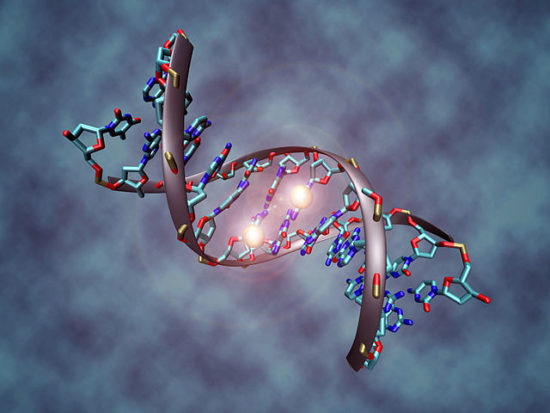
By Andrea Flink, Senior Fellow at Fordham Law School’s Center on Law and Information Policy
Since 1994 the New York state legislature has authorized a state database that stores DNA from all adults who have been convicted of designated crimes. Because of the deeply personal nature of DNA, that database operates under strict federal and state supervision by the FBI and the state’s Commission on Forensic Science.
But there is no such authorization or independent oversight of a second, little-known database kept by New York City’s Office of Chief Medical Examiner, which stores DNA profiles of thousands of New Yorkers in a “Subject Index” that includes individuals with no criminal convictions and children as young as 12 years old.
The medical examiner also maintains a forensic index, with thousands of unidentified crime scene DNA samples, that is authorized pursuant to state law. The DNA in the unauthorized Subject Index is constantly being compared with the forensic index, looking for potential matches in a process that critics say amounts to a “perpetual genetic lineup.”
In March, the Legal Aid Society of New York sued the city alleging that the Subject Index violates New Yorkers’ rights under state law and the Fourth Amendment of the U.S. Constitution, which prohibits searches and seizures without a warrant. The lawsuit seeks to have the Subject Index shut down, charging that the city ignored state and federal law “while secretly collecting and permanently storing the DNA profiles of thousands of people,” a practice that “should send a chill down the spine of every New Yorker,” according to Dave Pollock, staff attorney in Legal Aid’s DNA unit, in the group’s press release announcing the case.
Legal Aid argues that the Subject Index increases the risk that an innocent person will be erroneously arrested and prosecuted due to the contamination of evidence. Pollock told the Rag that anyone in a DNA index, especially an unregulated one like the Subject Index, can be wrongfully caught up in an investigation they had nothing to do with because DNA transfers easily to and from people and surfaces. Among the ways that could happen, he said, include leaving traces of your DNA in a bank that is later robbed, being treated by an EMT who is later called to a crime scene, or when DNA samples at a laboratory are inadvertently contaminated.
The complaint notes that due to the racially disproportionate rates of arrest in NYC, Black and Latino people comprise the “vast majority” of arrestees who are subject to the city’s taking and indexing of DNA.
The Subject Index is also under fire from Brad Hoylman, who represents the Upper West Side in the New York State Senate. Hoylman reintroduced a bill this year to clarify that the state’s database is the only DNA database authorized by New York state law. If approved, his bill would require New York City and other municipalities to expunge their DNA records.
“The fact that New York City thinks it can have its own database outside of state laws frankly is an outrage and should give everyone pause about something that could not be more personal to them: their genetic material,” Hoylman told the Rag in an interview. Though the bill didn’t pass this session, a spokesperson said Hoylman, if re-elected, plans to reintroduce the bill next year.
Both police and the city medical examiner’s office dispute Legal Aid’s characterization of the Subject Index database as unauthorized. A statement from New York Police Department spokesperson Sergeant Ed Riley to the Rag said, “The NYPD’s investigations and tactics, including the collection of DNA, are guided by what is authorized by the law, the wealth of case law from the courts, and the best practices of the law enforcement community.” Similarly, a spokesperson for the medical examiner’s office said the database “complies with all applicable laws” and is used in accordance “with the highest scientific standards” of independent accrediting bodies “that have regularly reapproved the existence of the database.” Neither spokesperson cited the specific laws that they say authorize the index.
Pollock told the Rag that the lawsuit doesn’t challenge use of DNA evidence in police investigations but does aim to force police to get a warrant or court order before collecting a person’s DNA. New Yorkers should not have to “give up the privacy of our genetic information for the sake of expediency in police investigations,” he said. “[W]e can and should insist that the police get a warrant or court order for our DNA, just as we insist that they get a warrant to search our homes.”
Because the DNA samples in the Subject Index are continuously being searched without probable cause, the city is classifying an enormous number of people who are innocent as suspects, according to Beth Haroules, senior staff attorney at the ACLU of New York. Haroules told the Rag in an interview, “The rogue database takes the presumption of innocence, one of the bedrock principles of our Constitution, and turns it on its head.” Every person in the database “is always a potential suspect, a potential perpetrator of a crime that just hasn’t been discovered yet, or in the case of young people, a crime they just haven’t committed yet,” said Haroules.
And since DNA is part of a person’s “biological material,” searching someone’s DNA in a database without a warrant is “functionally the same as an unconstitutional search of a person,” she said.
The city has moved to dismiss Legal Aid’s complaint, contending in a filing on July 16 that the two named plaintiffs represented by Legal Aid lack standing and that their claims are moot because their profiles have since been removed from the Subject Index. Legal Aid’s reply brief is due August 22.
The city’s motion also argues that the Subject Index is lawful because, although the legislature didn’t authorize the index, it also didn’t explicitly prohibit it when it passed the law setting up a state DNA database.
Hoylman dismisses that argument. “When the legislature created the State DNA Index, it did not envision local governments creating their own indexes operating completely outside the bounds of the statute and state and federal oversight,” he told the Rag.
Critics of the Subject Index point out that the legislature deliberately ruled out keeping minors’ DNA in the state database, because the criminal justice system is designed to shield juveniles from the stigma or burden of a criminal record. But no such rule applies to the city’s Subject Index, according to Anna Blondell, a Legal Aid staff attorney who works on juvenile rights. “Privacy implications are even more critical for juveniles who may be indexed and perpetually criminalized after a single mistake or contact with police as children,” she said.
The Legal Aid complaint cites an example of a 12-year-old boy, who is not named in the suit, who was suspected in a crime. When detectives questioned him, they gave him a soda with a drinking straw, enabling them to extract DNA from the straw without the knowledge of the boy or his parents. Although his DNA did not match the DNA at the scene of the crime they were investigating, it was put in the Subject Index and kept there for more than a year. As a result, the boy became a perpetual suspect, with his DNA continually compared against tens of thousands of crime scene DNA samples until his parents were finally able to get the DNA removed from the database, according to the lawsuit.
DNA profiles in the Subject Index can be obtained three ways: through consent; by court order; or by surreptitious collection from abandoned items, often left in local police precincts.
A 2013 version of the NYPD Detective Guide obtained by the Rag instructs officers on how to prepare a room to covertly collect a person’s DNA. Officers are told to remove any used ashtrays or other refuse, clean all surfaces with bleach, and then give the suspect “an object that will be partially consumed (e.g., cigarette, chewing gum, apple) or a container filled with a beverage (e.g., water in a plastic cup, soda in a can, coffee in a Styrofoam cup, juice in a plastic bottle).”
The officer must observe the item and suspect at all times until the sample is collected and sent to the medical examiner for processing.
Legal Aid lawyers say the city has declined its request to share an unredacted, updated version of the 2013 guide, but the group has seen no change in the practices the guide recommends.
Because of the ease with which DNA can be contaminated, the National Institute of Standards and Technology, a federal agency, recommends that law enforcement officers place their DNA in an “elimination database,” which would remove them from suspicion if their DNA is detected at crime scenes they are investigating. But the recommendation has been resisted by police officers’ unions.
“The fact that rank and file officers are unwilling to have their DNA stored due to privacy concerns puts a laugh to their argument that it’s not a big deal to have your DNA collected as long as you’re not committing crimes,” Pollock, the Legal Aid DNA unit attorney, told the Rag in an interview. “Storing your DNA implicates everyone’s privacy interests.”
Under pressure from the New York City Council, the NYPD announced in 2020 that it would reform its DNA retention policies and conduct a full audit and review of all profiles that had been in the Subject Index for at least two full years. Going forward, it will review new profiles after two years and do a full audit of the database every four years.
Under the review policy, profiles are to be removed from the Subject Index after two years unless the person has been convicted of a crime, is under investigation or prosecution for a crime, or in limited circumstances, if no conclusion was reached on the person’s guilt (for instance if the case was dismissed due to victim or witness intimidation).
In June 2021, the NYPD announced that its first audit had reviewed 20,460 of the more than 29,000 profiles in the Subject Index, and 5,400 of them were removed. Of the profiles reviewed that remained in the database after two years, auditors said that 1,106 had never been convicted of a crime.
As of August 2022, the Subject Index had grown by over 2,800 profiles. Philip Desgranges, supervising attorney in the Special Litigation Unit at Legal Aid in Manhattan, told the Rag that since there is no legislation governing the index, the police can change rules, ignore them, or create loopholes that maintain the status quo, “despite whatever statements they make to the public about their intent to change.”
Hoylman believes that the Legal Aid lawsuit presents another strong argument for the state legislature to pass his bill and eliminate the Subject Index: “We are going to save the city years of litigation and cost in what’s bound to be a protracted legal case.”
To determine whether you are in the Subject Index, you can submit this form by email to legal@ocme.nyc.gov or mail it to The Office of Chief Medical Examiner, Legal Department, 421 East 26th Street, NY, NY 10016.
You can read Part 1 of this series, “23andYou,” here.










Terrific work. This is a big problem that the readers of the rag, unfortunately, seem uninterested in becoming aware of or are willfully oblivious to the risks. The hospital I work at has two options – either pay excessive amounts to dispose of human tissues (for example, those removed during surgery) or receive money from companies interested in purchasing this bio-waste. Which do you think they choose? And why do these companies pay for your biological material? What are their obligations to protect it? What are their limits of use? Thank you for your efforts!
Thanks Michael for this thoughtful and interesting comment. Would you be interested in talking to the Rag about this further?